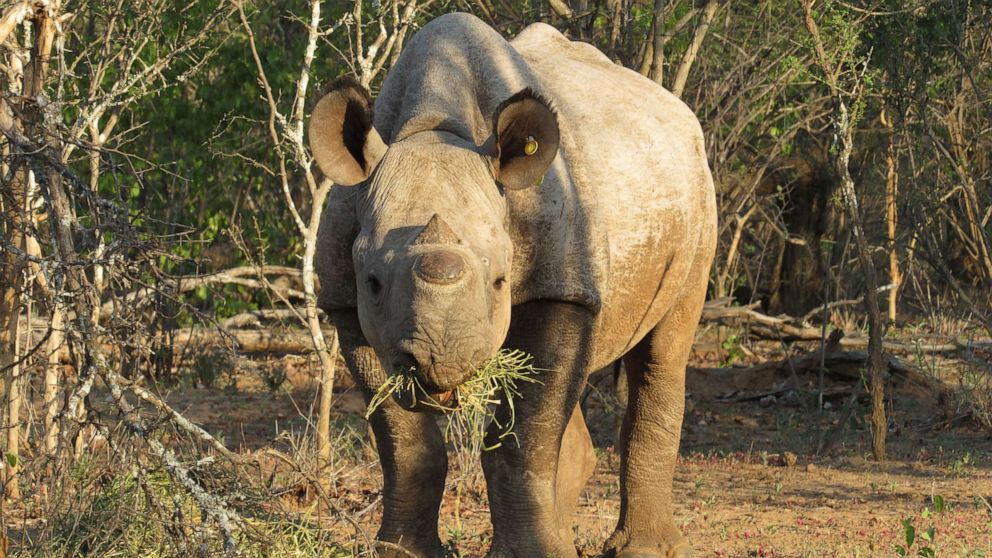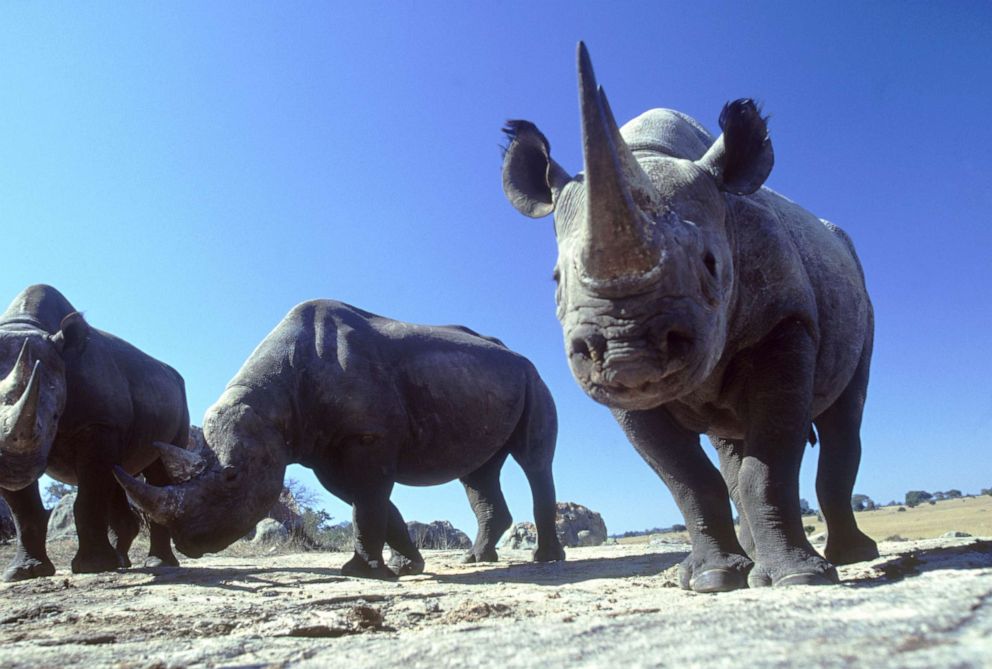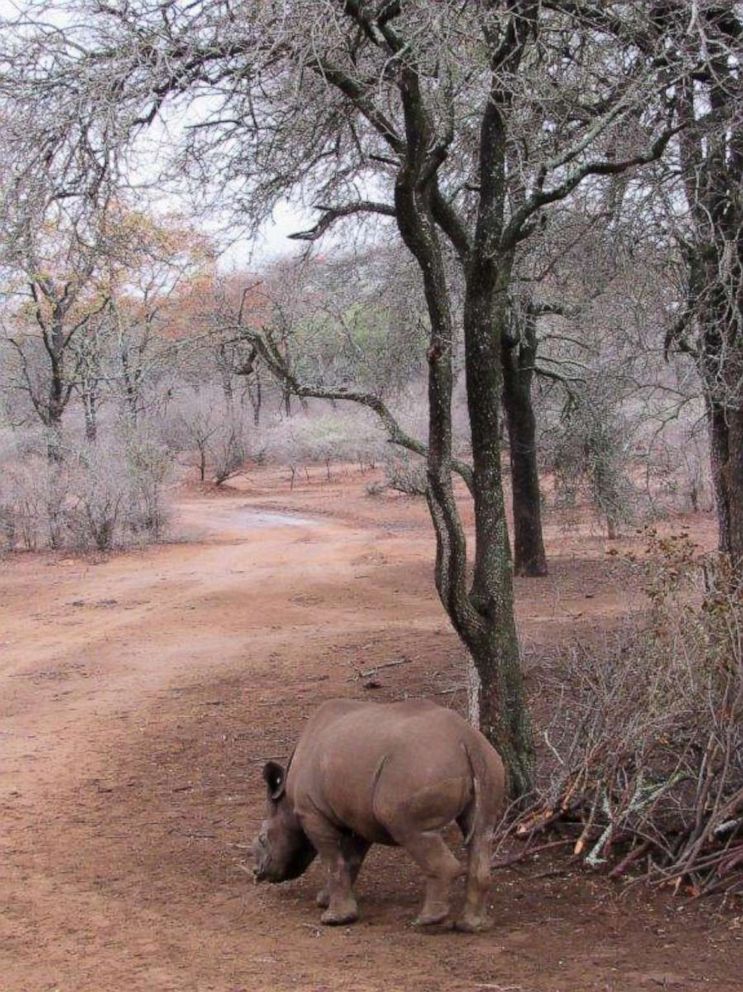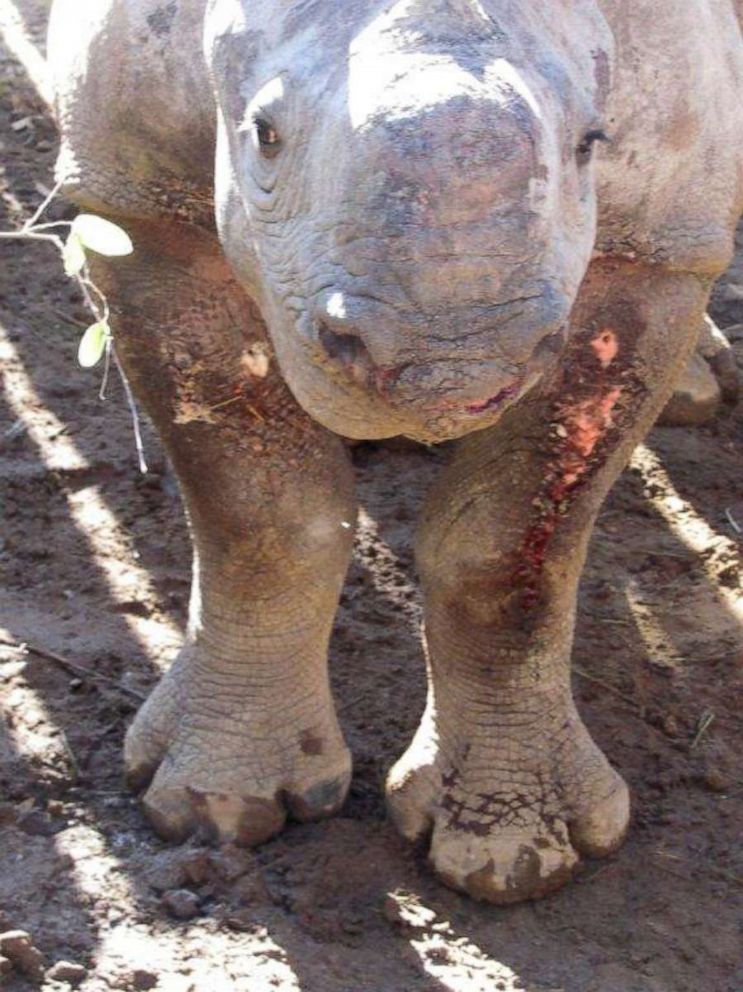One orphaned calf is flourishing after being re-released into a preserve.
ByJulia Jacobo
November 30, 2022

Baby rhinos give hope to saving endangered species
As conservationists race to protect endangered rhinos, a group in South Africa has found hope through miracle baby calves...
Rhinoceros populations are beginning to rebound in the species' native home of Zimbabwe, a sign that efforts to preserve the species are working, according to animal conservationists.
The rhino population in Zimbabwe has surpassed more than 1,000 animals for the first time in more than 30 years, according to the International Union for Conservation of Nature Species Survival Commission's African Rhino Specialist Group. This includes 614 black and 415 white rhinos, listed as critically endangered and near threatened on the IUCN's Red List of Threatened Species, respectively.
MORE: Rhino poaching in South Africa declines dramatically due to COVID-19 lockdown, officials say
Dedicated conservationists continue to persevere in protecting the country’s rhinos "with great success," despite soaring costs for food and fuel, according to the International Rhino Foundation, which was founded 31 years ago amid a poaching crisis.

In this undated file photo, black rhinos are show in Imire Game Park in Zimbabwe.
John Downer/Getty Images, FILE
The populations have thrived due to intensive protection, monitoring and management of these animals, Christpher Whitlatch, spokesperson for the International Rhino Foundation, told ABC News.
MORE: Last male Sumatran rhino in Malaysia dies, eliminating chance of saving the species in the country
Included in the population of black rhinos in Zimbabwe’s Bubye Valley Conservancy is Pumpkin, who was injured and orphaned by poachers and continues to flourish after she was re-released into the wild just months later.
During a routine patrol in July 2020, conservationists from the Lowveld Rhino Trust found Pumpkin's mother, who had been killed by poachers, Whitlatch said. Near her body, the conservationists noticed "little bloody footprints," to which they tracked down Pumpkin, who was still alive but had been shot in the torso by the poachers and was severely injured, Whitlatch said. She was just about 16 months at the time.

Pumpkin the black rhinoceros continues to thrive in the wild in Bubye Valley Conservancy in Zimbabwe.
International Rhino Foundation
Pumpkin's will to live was apparent from the get-go, as were her "spunk" and "charisma," Whitlatch said. She even took a bottle from her caregivers, a foreign concept to baby rhinos that gave them confidence that she would survive.
After some months of rehabilitation, Pumpkin was released back in October 2020 back into the protected land, home to most of the rhinos in Zimbabewe and where she continues to thrive today, Whitlatch said.
MORE: Critically endangered black rhino born in Michigan zoo
Pumpkin is monitored on a regular basis, and has even made the acquaintance of a young male black rhino of the same age named Rocky, giving conservationists hope that they will mate and reproduce, Whitlatch added.

Pumpkin the black rhinoceros continues to thrive in the wild in Bubye Valley Conservancy in Zimbabwe.
International Rhino Foundation
However, it has still been a difficult year for rhinos, according to the International Rhino Foundation. After a temporary lull in poaching due to COVID-19 pandemic restrictions, criminal networks have quickly adapted to the new challenges, and poaching rates and trade volume have begun increasing again this year, according to the IRF.
"Large, organized crime groups, who see wildlife trafficking as low-risk, high-reward crime, became even more involved in rhino horn trade during the pandemic, monopolizing key networks and moving higher volumes of horn," the conservation said in a statement.
No comments:
Post a Comment